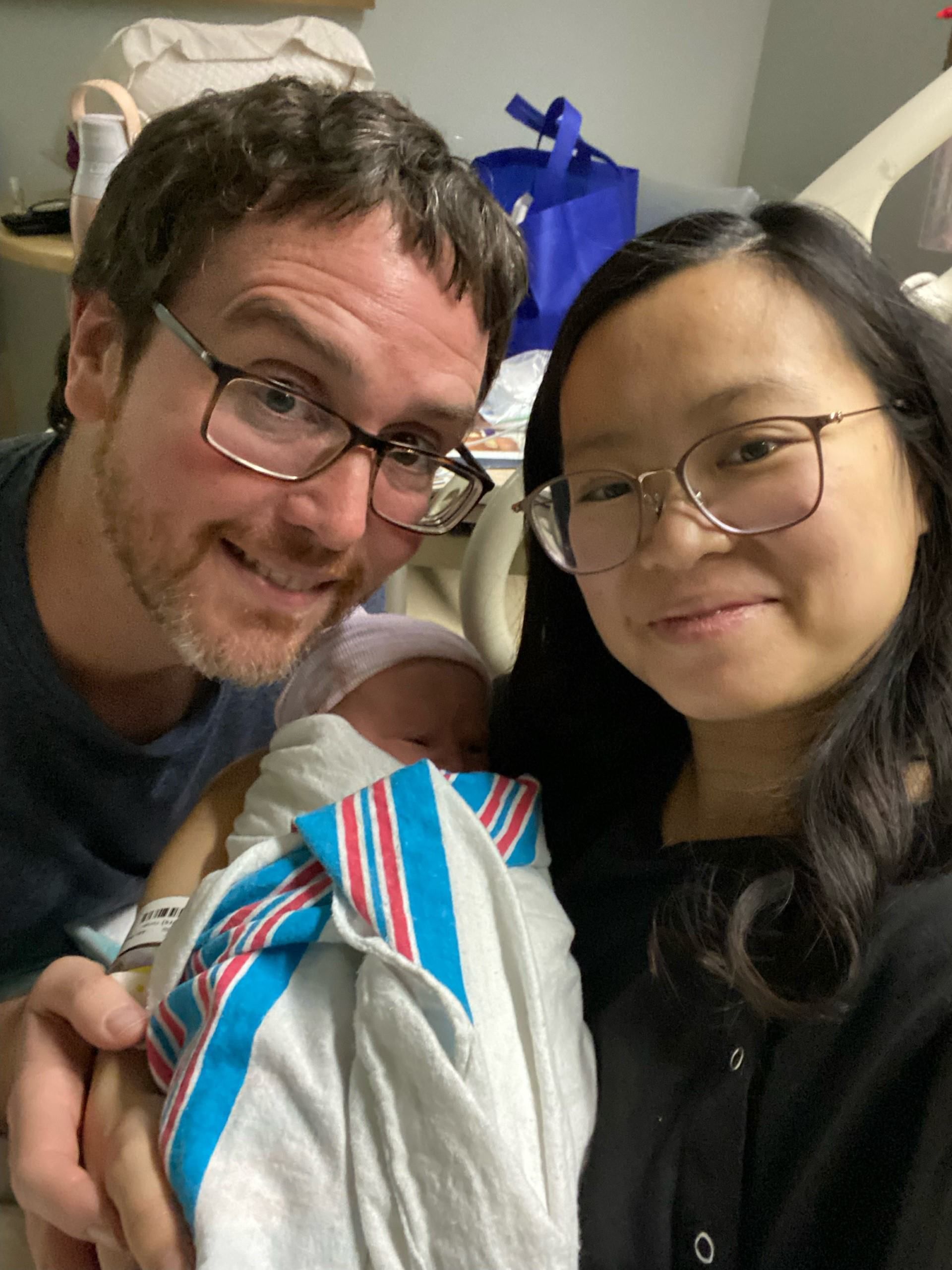How To Pick An Ob/gyn When You're Pregnant
Congratulations, you’re pregnant! What’s next?
It’s time to find a pregnancy care team who can provide the range of specialized services you need for yourself and your growing baby. You may be wondering how to choose an ob/gyn, or whether to consider a midwife. During this life-changing time, it’s important to find a provider who is the right fit for your prenatal care, labor & delivery, and any other services you may need to help ensure a healthy pregnancy and birth.
Here are 10 important things you may wish to consider when choosing an obstetrician or choosing a midwife at this exciting time in your life:
- Check provider credentials
- Think about your comfort level with the providers and staff. Is it a good fit?
- Learn about the support team
- Explore all the services offered
- Consider CenteringPregnancy®
- Take advantage of community and resources
- Read patient reviews
- Check insurance
- Become familiar with practice and hospital locations
- Know your rights
Reply offers new patient appointments for women at any stage of their pregnancy. If you have questions or would like to schedule an appointment, please contact us!
1. Check provider credentials
If you’re new to an area, or not yet established with a regular physician, you might be wondering how to find an obgyn, or how to find the right obgyn during pregnancy. Whether you’re looking for an obstetrician, a nurse midwife, or a team with both, a good place to start is with a provider’s credentials (their education and training information), which you should be able to find in an on-line bio. This information should include whether the provider is board-certified. Physicians and midwives have similar approaches to care; they also have unique differences. You can learn more about nurse midwives at our recent post Midwifery 101. Nurse midwives typically are able to spend more time with women during labor and provide statistically fewer interventions such as episiotomies, with equally good outcomes for moms and babies.
2. Think about your comfort level with the providers and staff
Once you have found an obstetrician or midwife who appears to be a good fit on paper, make an appointment to get to know them. You can always switch if you’re not comfortable for any reason. Some questions to think about:
- Communication: were you comfortable asking questions and were you satisfied with the responses? Did you feel listened to?
- Trust: did you feel good about trusting this team with your care?
- Experience: does this provider/clinic have the experience and expertise you need?
- Coverage: who will be providing your prenatal care and who may be present for your birth?
- Your Labor & Delivery plan: do you feel like everyone is on the same page in developing your plans for labor & delivery?
3. Learn about the support team
From ultrasound technologists and health coaches, to doulas and lactation consultants, there are villages of support to help you along your pregnancy journey. Your provider can give you more information about which resources might be important for you throughout pregnancy and postpartum. At Reply, we are pleased to offer in-house ultrasonography, fertility education, health coaching, lactation support, and more, all in our Cary location. Visit our clinic team here.
4. Investigate services offered
It’s important to find a practice with services that match your needs. For example, the Reply clinic provides care for low-risk and most high-risk pregnancies, including for women seeking TOLAC/VBAC (“Trial of Labor after Cesarean”/”Vaginal Birth after Cesarean”), and our team includes a maternal-fetal medicine physician. In addition, Reply offers CenteringPregnancy, an evidence-based program of group prenatal care that offers extensive support and produces improved outcomes. Reply also specializes in advising women how to avoid pregnancy naturally, including use of LAM (“Lactational Amenorrhea Method”) or other fertility awareness-based methods (FABMs) following birth. Reply does not provide tubal ligations or contraception, as these services are not in keeping with our cooperative approach.
5. Consider CenteringPregnancy® (really!)
At Reply, we offer both traditional 1-on-1 prenatal care as well as CenteringPregnancy, an innovative, evidence-based program of prenatal care developed by the Centering Healthcare Institute in Boston. Centering consists of group prenatal care, where pregnant women are teamed with ~6-10 other patients of about the same gestational stage, and they learn together in sessions that run about two hours as an alternative to the much shorter private provider appointments. Each participant still has a private medical check at each session, but the group meeting allows for more access to your medical team, and fosters an environment of learning and support. Research has shown that women and babies have better outcomes with Centering, and patients report high levels of satisfaction with the program. Learn more about Reply’s Centering program here.
Note: at this time due to the coronavirus pandemic, we are working to maintain Centering groups via virtual gatherings through telehealth; feel free to ask our team for updates to this popular program.
6. Take advantage of community and resources
Friends and family often are a wealth of information, especially for first-time parents. There’s also a multitude of supportive resources, both free and for-cost, offered through clinics, hospitals, and independent consultants. These resources can be invaluable not only for the information provided, but also can serve as an introduction to other soon-to-be parents! Check out our list of Classes & Events, with everything from hospital tours and breastfeeding classes to Daddy Boot Camp!
7. Read patient reviews
Testimonials from past and current patients are another way to gain insight. Look for patient stories that mention situations like your own or factors that are important to you. Review both on-site and off-site patient testimonials–those listed on the provider’s website itself as well as those posted as reviews on Google, Facebook, or other sources.
At Reply, we promote patient education and encourage patients to be active participants in their care. Here are some examples of how we’ve helped with some unique patient situations, including during pregnancy.
“I went to a doctor who didn’t understand the philosophy behind Natural Family Planning. After [my] miscarriage, I felt like I needed to see somebody who was on the same page and who could speak the same language I was speaking … A friend told me about Reply and I made an appointment with Dr. Rachel Urrutia. I feel like I was meant to see her. She was perfect.” –Rachel R.
8. Check insurance
It’s important to understand your health plan benefits, and generally is recommended to choose a provider in-network to receive affordable care. You’ll want to understand what costs are covered and which costs you will be responsible for. If you don’t have insurance or are choosing to pay privately for any reason, you may want to inquire about payment plans.
Information about which insurance is accepted is usually available on clinic websites; Reply’s accepted insurance plans can be found here and our billing director can answer any questions about costs of services.
9. Become familiar with practice and hospital locations
You might have a strong preference to give birth at a certain hospital—if so, you can check to see which ob/gyn practices deliver there. Or you might do the reverse and find a provider/practice you like, and then have your baby at the hospital they are affiliated with. Either way is fine. Ideally you will not have a long commute, but you may also decide it’s worth a short drive to get what you’re looking for. In addition, some visits can be covered by telehealth, especially during the coronavirus pandemic, eliminating much travel time!
10. Know your rights
Don’t ever forget that you, the patient, are the customer. You deserve competent and respectful care, and you have privacy rights, the right to informed consent, and rights to your own medical records. You may always change your mind about a provider or practice, and arrange to transfer your care elsewhere.
Author Bio:
Samantha Ratcliffe is a board-certified nurse midwife at Reply Ob/Gyn & Fertility. She earned her Master of Science in Women’s Health and Nurse Midwifery from Georgetown University, and completed her residency with AYA Healthcare in San Diego, CA, where she gained experience in labor and delivery as well as high-risk antepartum and intrapartum units. She is passionate about international outreach and has worked to provide gynecologic services to women in several locations including Cuzco, Peru. Mrs. Ratcliffe holds certifications in ALCS, BLS, NRP (Neonatal Resuscitation Program), and Advanced Fetal Monitoring, and is also a licensed fertility educator and breastfeeding counselor.











